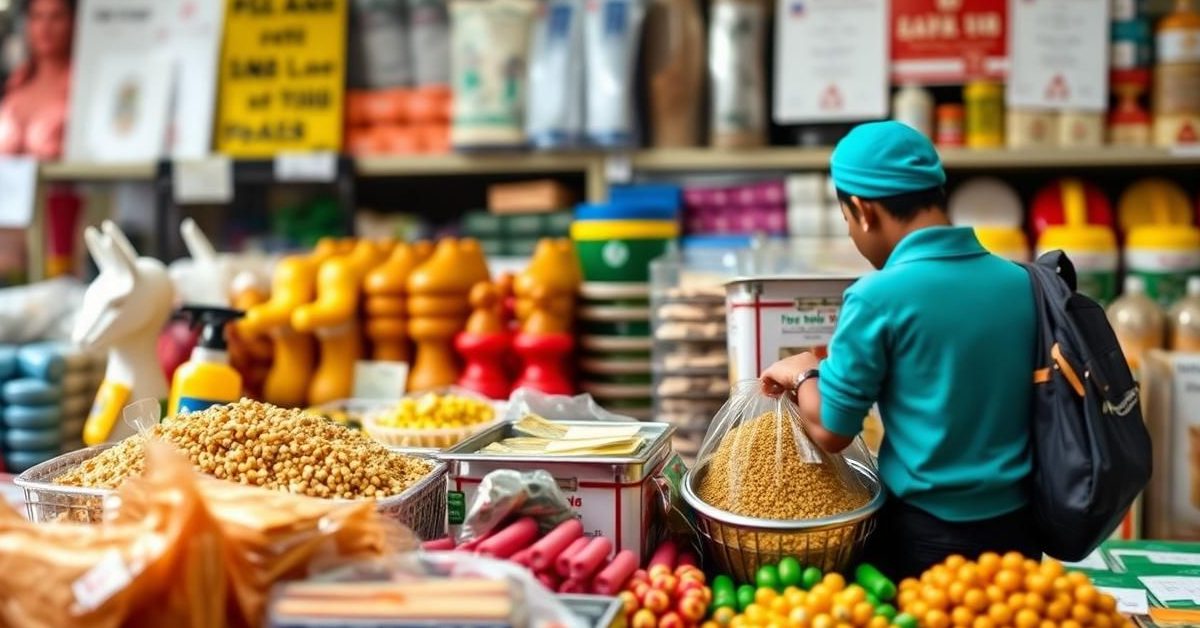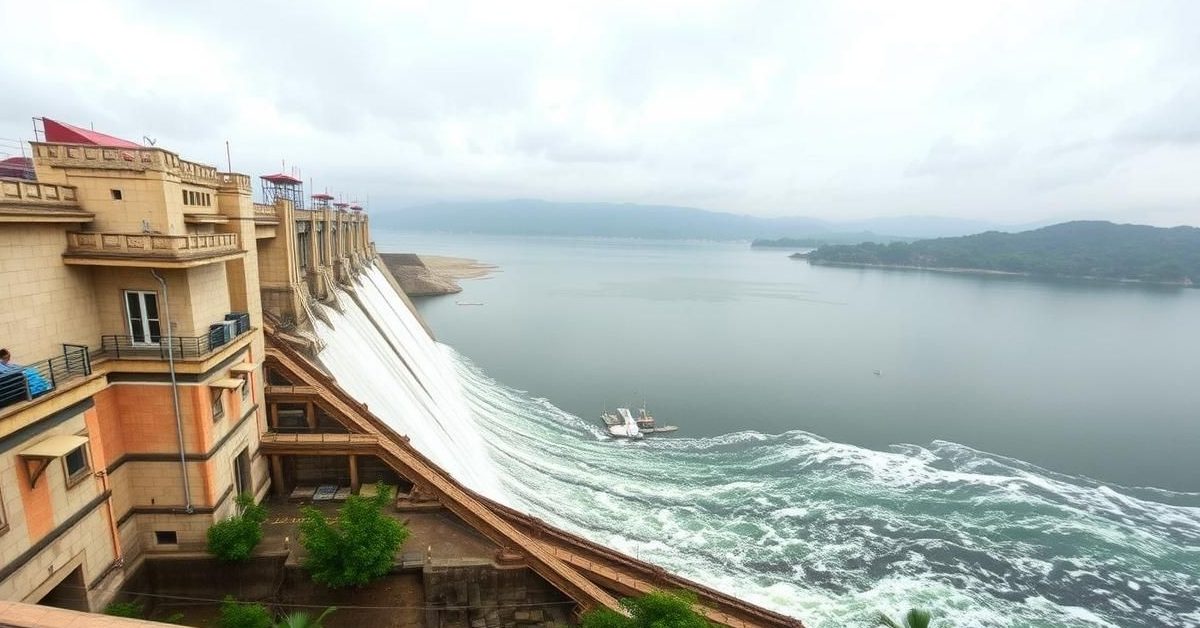This article dives into key economic concepts recently featured in the UPSC Essentials Economy quiz, covering vital topics like the Gini Index, vehicle emission norms, international economic relations, and crucial industrial resources.
Gini Index: Measuring Economic Inequality
The Gini Index, or Gini coefficient, is a widely used tool to understand how income, wealth, or consumption is distributed among individuals or households within a country. It ranges from 0 to 1 (or 0% to 100%), where higher scores indicate greater inequality.
According to the World Bank, India’s Gini Index for consumption stands at 25.5, positioning it as the fourth most equal country globally in this specific measure. This suggests a more even distribution of economic progress benefits based on consumption.
However, it’s important to note that while consumption-based inequality improved between 2011-12 and 2022-23, income inequality has reportedly increased from 52 Gini in 2004 to 62 in 2023, highlighting a persistent wage gap where top earners significantly outpace those at the bottom.
Decoding Vehicle Emission Norms: CAFE and BS VI
India’s automotive sector operates under two primary regulatory frameworks for vehicle emissions: Corporate Average Fuel Efficiency (CAFE) standards and Bharat Stage VI (BS VI) norms. While both aim to curb pollution, their focus areas differ.
CAFE standards primarily target fuel efficiency and the reduction of CO2 emissions from vehicles. On the other hand, BS VI regulations encompass a broader spectrum of pollutants, including particulate matter (PM) and nitrogen oxides (NOx), which are significant air quality concerns.
Cambodia’s Deepening Ties with China
Cambodia has emerged as a staunch supporter and early adopter of China’s ambitious global infrastructure initiative, the Belt and Road Initiative (BRI). This has led to China becoming the primary financier for Cambodia’s extensive infrastructure development.
Chinese investments have poured into various sectors, including roads, bridges, dams, railways, and Special Economic Zones (SEZs) across Cambodia. This strong economic partnership has also influenced trade dynamics, particularly in the face of international tariffs.
The Crucial Role of Coking Coal
Coking coal is a vital raw material predominantly used by the steel industry. It plays a critical role in steel production, making its availability a key concern for national industrial growth.
Despite domestic reserves, India significantly relies on imports to meet the demand for coking coal and improve the quality of its steel output. While imports have fluctuated, they have not shown a consistent increase year-on-year from 2020-21 to 2023-24.
There’s an ongoing discussion, notably highlighted by a Niti Aayog report, advocating for coking coal’s inclusion in the list of critical minerals to bolster domestic production and align with long-term climate goals.
Understanding Deposit Insurance in India
Deposit insurance in India is managed by the Deposit Insurance and Credit Guarantee Corporation (DICGC), a subsidiary of the Reserve Bank of India. Its primary function is to safeguard the savings of small depositors in case of a bank failure.
The DICGC provides an insurance cover of up to Rs 5 lakh per depositor. This cover applies to all accounts held by an individual across all branches of an insured bank, including savings, fixed, current, and recurring deposits.
The coverage extends to a wide range of banking institutions, including commercial banks, branches of foreign banks operating in India, local area banks, regional rural banks, and cooperative banks. However, primary cooperative societies are not covered under this scheme.
- The Gini Index measures economic inequality, with India’s consumption Gini at 25.5.
- CAFE standards focus on fuel efficiency, while BS VI norms cover broader vehicle emissions like NOx and particulate matter.
- China is the leading financier for Cambodia’s infrastructure, driven by the Belt and Road Initiative.
- Coking coal is essential for the steel industry, and its import trends have been inconsistent.
- The DICGC provides deposit insurance of up to Rs 5 lakh per depositor across various bank types.
Understanding these economic fundamentals is crucial for grasping India’s economic landscape and its global interactions.
This article dives into key economic concepts recently featured in the UPSC Essentials Economy quiz, covering vital topics like the Gini Index, vehicle emission norms, international economic relations, and crucial industrial resources.
Gini Index: Measuring Economic Inequality
The Gini Index, or Gini coefficient, is a widely used tool to understand how income, wealth, or consumption is distributed among individuals or households within a country. It ranges from 0 to 1 (or 0% to 100%), where higher scores indicate greater inequality.
According to the World Bank, India’s Gini Index for consumption stands at 25.5, positioning it as the fourth most equal country globally in this specific measure. This suggests a more even distribution of economic progress benefits based on consumption.
However, it’s important to note that while consumption-based inequality improved between 2011-12 and 2022-23, income inequality has reportedly increased from 52 Gini in 2004 to 62 in 2023, highlighting a persistent wage gap where top earners significantly outpace those at the bottom.
Decoding Vehicle Emission Norms: CAFE and BS VI
India’s automotive sector operates under two primary regulatory frameworks for vehicle emissions: Corporate Average Fuel Efficiency (CAFE) standards and Bharat Stage VI (BS VI) norms. While both aim to curb pollution, their focus areas differ.
CAFE standards primarily target fuel efficiency and the reduction of CO2 emissions from vehicles. On the other hand, BS VI regulations encompass a broader spectrum of pollutants, including particulate matter (PM) and nitrogen oxides (NOx), which are significant air quality concerns.
Cambodia’s Deepening Ties with China
Cambodia has emerged as a staunch supporter and early adopter of China’s ambitious global infrastructure initiative, the Belt and Road Initiative (BRI). This has led to China becoming the primary financier for Cambodia’s extensive infrastructure development.
Chinese investments have poured into various sectors, including roads, bridges, dams, railways, and Special Economic Zones (SEZs) across Cambodia. This strong economic partnership has also influenced trade dynamics, particularly in the face of international tariffs.
The Crucial Role of Coking Coal
Coking coal is a vital raw material predominantly used by the steel industry. It plays a critical role in steel production, making its availability a key concern for national industrial growth.
Despite domestic reserves, India significantly relies on imports to meet the demand for coking coal and improve the quality of its steel output. While imports have fluctuated, they have not shown a consistent increase year-on-year from 2020-21 to 2023-24.
There’s an ongoing discussion, notably highlighted by a Niti Aayog report, advocating for coking coal’s inclusion in the list of critical minerals to bolster domestic production and align with long-term climate goals.
Understanding Deposit Insurance in India
Deposit insurance in India is managed by the Deposit Insurance and Credit Guarantee Corporation (DICGC), a subsidiary of the Reserve Bank of India. Its primary function is to safeguard the savings of small depositors in case of a bank failure.
The DICGC provides an insurance cover of up to Rs 5 lakh per depositor. This cover applies to all accounts held by an individual across all branches of an insured bank, including savings, fixed, current, and recurring deposits.
The coverage extends to a wide range of banking institutions, including commercial banks, branches of foreign banks operating in India, local area banks, regional rural banks, and cooperative banks. However, primary cooperative societies are not covered under this scheme.
- The Gini Index measures economic inequality, with India’s consumption Gini at 25.5.
- CAFE standards focus on fuel efficiency, while BS VI norms cover broader vehicle emissions like NOx and particulate matter.
- China is the leading financier for Cambodia’s infrastructure, driven by the Belt and Road Initiative.
- Coking coal is essential for the steel industry, and its import trends have been inconsistent.
- The DICGC provides deposit insurance of up to Rs 5 lakh per depositor across various bank types.
Understanding these economic fundamentals is crucial for grasping India’s economic landscape and its global interactions.















